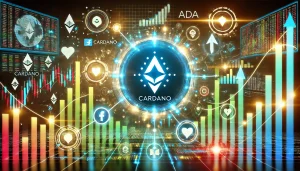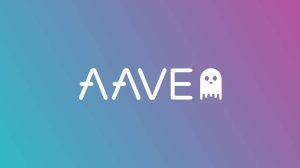- The EU is working on building a circular economy for industrial robots, outdoor power products, and electric vehicles and IOTA’s digital twin feature will play a crucial role.
- IOTA’s digital twin system can help in ensuring the full traceability of each product and component in the supply chain.
The IOTA network has been popular for offering solutions to real-life problems in the supply chain industry. IOTA employs the Directed Acyclic Graph (DAG) DLT technology which makes it stand out from most blockchain platforms.
Now, The European Union is working on pushing the digital twin use cases offered by the IOTA Foundation. The EU is working on building intelligent circular life cycles for industrial robots, outdoor power products, and electric vehicles.
YES the #IOTA Foundation is still involved in pushing #digitaltwin use cases. @Technol66823335 found this juicy spec that gave me some hard nipps. Here’s a fresh grant led by @ucddublin that involves @iota @KUKAGlobal #Husqvarna and @JonkopingUni pic.twitter.com/ER6kXCYV6h
— Spec Weekly (@SpecWeekly) October 10, 2022
Through its innovative training program, iCircular3 will incorporate circular economy principles for the European economy in each of the three above sectors. The iCurcular3 is a three-year project starting January 1, 2023.
As the EU stated, each of these three sectors will explore the possibility of a circular economy from different perspectives. This includes product and service design, reverse supply chains, users and stakeholders, reverse logistics systems, and much more. The official announcement notes:
iCircular3 will recruit and train 9 Researchers to conduct sector-specific projects related to circular lifecycle perspectives; combined together, the projects will contribute to the development of new guidelines and digital tools for the integration of circularity in industry, as well as the identification of cross-sector commonalities. The strong academic/industry interaction in iCircular3 will ensure the relevance of each research project.
The University College of Dublin is leading the grant for the upcoming project. The IOTA Foundation is also part of this interesting project while sharing its digital twin use cases.
IOTA and Digital Twin use cases
As we know, the IOTA blockchain is one of the most sought-after platforms for supply chain management systems. The IOTA blockchain provides the facility to store crucial information in a secure and open infrastructure.
The IOTA Tangle technology offers immutability of data in addition to sharing information across customers and users in the value chain. The use cases of IATA in digital twins for manufacturing are very large.
After storing all the data in IOTA Tangle, users can get full traceability of each product and component dubbed Digital Twin. Every product in the manufacturing value chain remains safe and can be identified using a serial number.
Interestingly, IOTA’s public infrastructure doesn’t require any fees or the use of digital assets to store the data in a decentralized manner. Thus, it offers an optimal setting for digital twins and other assets to be safe against manipulation while sharing it with partners in the production value chain.
Additionally, the digital twin of the product cannot be altered. Thus, it will serve as proof when it comes to required regulations, a complaint, or a recall of the cause of the effect.
Related: IOTA partnership update in $80B market: EDAG to start autonomous multifunctional robot in Frankfurt
Der Beitrag IOTA and the EU pushing digital twin use cases for reverse logistic systems and more erschien zuerst auf Crypto News Flash.





















